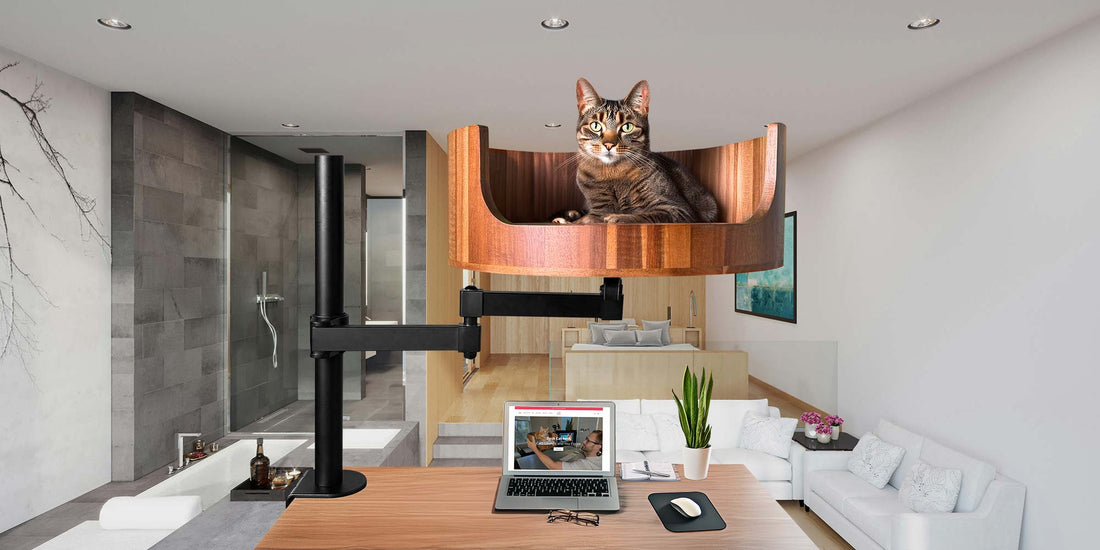
Signs My Cat Is Dying: What to Look For and Do
Share
As cat owners, one of our worst fears is facing the inevitable reality that our beloved feline companions may be reaching the end of their lives. It can be a heart-wrenching experience to witness our cats grow old and frail, showing signs that their health is declining. In this article, we will explore the subtle signs that your cat may be dying, what to look for, and what steps you can take to provide comfort and support during this difficult time.
From changes in appetite and grooming habits to sudden weight loss and lethargy, there are numerous signs that may indicate that your cat is reaching the end of their life. Recognizing these signs early on can help you better prepare for what lies ahead and ensure that your furry friend receives the care and attention they need in their final days. Additionally, we will discuss the emotional aspect of coping with a dying cat, how to make their remaining days as comfortable as possible, and when it may be time to consider humane euthanasia. By being aware of the signs and symptoms of a dying cat, you can provide the best possible care and support for your beloved pet during this difficult journey.
1. Watch for significant changes in your cat's behavior, such as decreased appetite, lethargy, or withdrawal.
2. Keep an eye out for physical symptoms like weight loss, labored breathing, or difficulty walking.
3. Regular vet check-ups are essential to catch any health issues early on.
4. Provide comfort and support to your cat in their final days, such as offering a warm and quiet space.
5. Consult with your veterinarian for guidance on hospice care or end-of-life decisions for your beloved feline companion.
Changes in Behavior
Changes in behavior can be a significant indicator that your cat may be dying. Look out for signs such as decreased activity levels, changes in appetite or water intake, hiding or seeking solitude, aggression, increased vocalization, and changes in litter box habits. These behavioral changes may be subtle at first but can become more pronounced as your cat's condition deteriorates. Keep a close eye on your cat's behavior and consult with a veterinarian if you notice any concerning changes.
Physical Symptoms
There are several physical symptoms that may indicate that your cat is dying. These can include drastic weight loss, difficulty breathing, pale or yellowed gums, open wounds that do not heal, seizures, and signs of severe pain such as crying or excessive grooming of a particular area. It is important to carefully monitor your cat's physical condition and seek immediate veterinary care if you notice any of these symptoms.
Changes in Appearance
As a cat nears the end of its life, you may notice changes in its appearance. These can include a dull or unkempt coat, sunken eyes, droopy posture, a hunched back, and a lack of grooming. Your cat may also become more emaciated or skeletal in appearance as it loses muscle mass. Pay close attention to these changes and seek guidance from your veterinarian on how to best care for your cat during this difficult time.
Quality of Life
In addition to monitoring your cat's physical symptoms and behavior, it is important to consider its overall quality of life. If your cat is in pain or suffering, it may be time to consider euthanasia as a compassionate option. Consult with your veterinarian to assess your cat's condition and discuss end-of-life care decisions. Ensuring that your cat is comfortable and at peace in its final days is a crucial part of responsible pet ownership.
Desk Cat Nest FAQ
What are some signs that my cat is dying?
Some common signs that your cat may be nearing the end of its life include loss of appetite, extreme weakness or lethargy, difficulty breathing, vomiting or diarrhea, and a noticeable decrease in grooming behaviors. If you notice any of these signs, it is important to consult with your veterinarian for guidance.
How can the Desk Cat Nest provide comfort for a dying cat?
The Desk Cat Nest is designed to provide a cozy and secure space for your cat to rest and feel safe. The soft, cushioned interior provides a comfortable spot for your cat to relax, while the enclosed design helps create a sense of security. Offering a familiar and comforting space like the Desk Cat Nest can help provide comfort for a cat that is nearing the end of its life.
Is the Desk Cat Nest easy to clean?
Yes, the Desk Cat Nest is designed for easy cleaning. The plush cushion can be removed for washing, and the outer shell can be wiped down with a damp cloth. Regular cleaning and maintenance of the Desk Cat Nest will help keep it fresh and inviting for your cat.
Can the Desk Cat Nest accommodate cats of all sizes?
The Desk Cat Nest is designed to accommodate cats of various sizes, but it may not be suitable for larger breeds or overweight cats. It is best suited for cats that enjoy cozy and enclosed spaces for sleeping and relaxing. Be sure to check the dimensions of the Desk Cat Nest before making a purchase to ensure it will be a comfortable fit for your cat.
In conclusion, if you notice signs that your cat may be nearing the end of its life, providing a comfortable and soothing environment is crucial. A Desk Cat Bed can offer your feline companion a cozy and safe space to rest and find solace during this challenging time. With its plush cushioning and elevated design, this bed can help alleviate any discomfort your cat may be experiencing and provide a sense of security in their final days. By investing in a Desk Cat Bed, you can ensure that your beloved pet is cared for and supported as they navigate this difficult journey.



















































